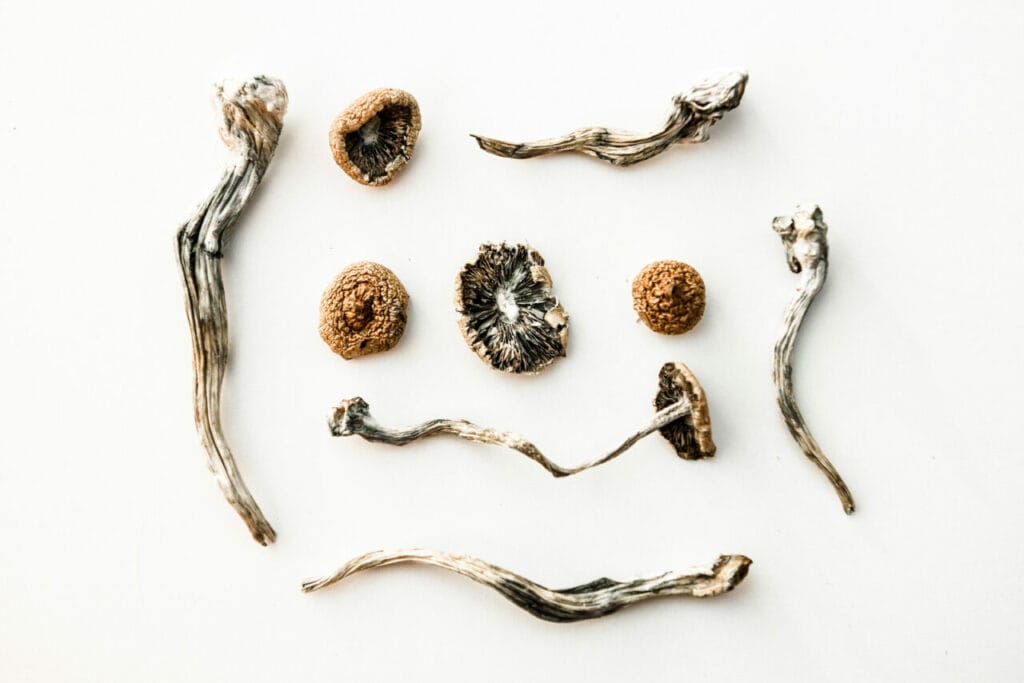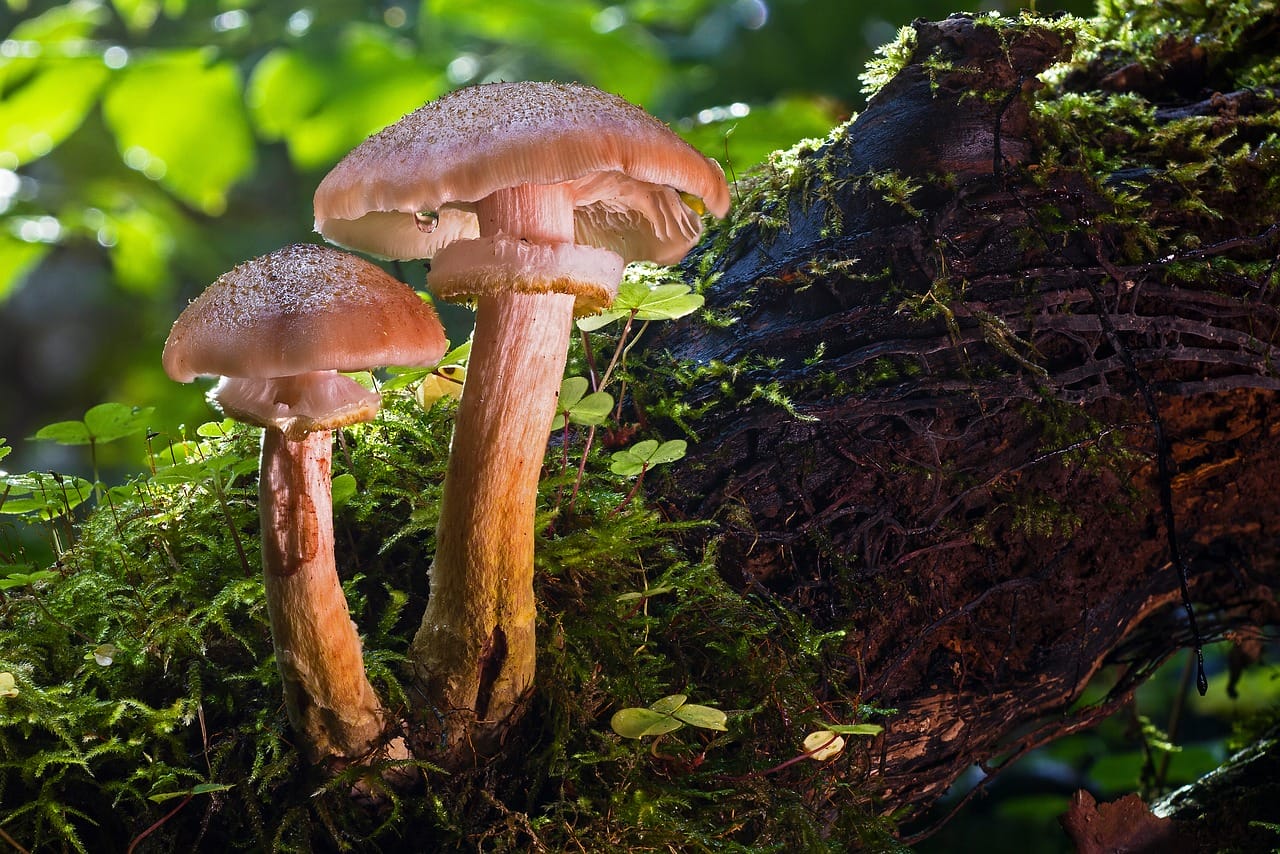Initially, magic mushrooms were perceived by many Canadians as a psychedelic substance primarily used for recreational purposes. But scientific exploration of the active ingredient, psilocybin, has revealed its powerful effectiveness in treating various mental health disorders.
With the emergence of more research, our comprehension of the uses of psilocybin is increasing. This heightened understanding simplifies the process for people to acquire these products through magic mushroom delivery services. A recent study throws light on its role in human consciousness, potentially explaining its substantial impact on the human brain. Let’s probe further into this fascinating journey of magic mushroom products.
Main Takeaways:
- The cognitive functioning of early humans was positively influenced by psychedelic magic mushrooms, aiding their survival.
- Mushrooms play a critical role in neurological health due to their potential to mitigate PTSD, depression, and anxiety.
- Psilocybin’s effects on consciousness and brain function may have promoted creativity, introspection, and abstract thinking.

Past Usage and Significance of Magic Mushrooms
Historical evidence suggests that our ancestors have been utilizing psychedelic magic mushrooms since ancient times. These were used in sacred rituals and traditional ceremonies by indigenous communities to honor their gods. They are found worldwide, especially in subtropical and tropical regions like South and Central America, the Caribbean, Southeast Asia, and Africa.
Shrooms’ Influence on Ancient Civilizations
Indigenous communities in Mexico have relied on these fungi for spiritual enlightenment, divine connection, and religious ceremonies since ancient times. The Aztec Indians of South America referred to it as “God’s Flesh”, using it in healing rituals.
Evidence from archaeological discoveries suggests usage dates back to:
- Approximately 10,000 years ago in Australia
- Close to 7,000 years ago in North Africa
- Nearly 6,000 years ago in Spain.
These findings have been interpreted by some scholars as evidence of the widespread historical consumption of psilocybin. When ingested, these mushrooms induced a euphoric state, producing hallucinations filled with complex geometric and visual patterns.
Mushrooms and Their Place in the Bronze Age History of Spain
In the mid-1990s, remnants, specifically hair strands from nearly 200 Bronze Age communities, were discovered hidden inside a cave in Minorca, Spain. Enclosed by fallen debris, the cave’s entrance was sealed, preserving the artifacts impressively. Analytical studies showed that these hair samples contained traces of three alkaloids, known for their mind-altering effects and inducing altered states of consciousness.
This evidence provides intriguing insights into the reasons and methods ancient societies used these substances. Surprisingly, reaching a heightened state was quite common during those periods. The question that still lingers is, what influence did these substances exert on human evolution?
Psilocybin’s Role in the “Big Bang Theory” of Human Evolution
Currently, there is a revival in psychedelic research, reinforcing the hypothesis that psychedelics contributed to the evolution of consciousness. This idea, known as the stoned ape theory, was proposed by ethnobotanist Terence McKenna. The theory posits that the ingestion of psychedelics could have influenced the cognitive and cultural evolution of humans.
According to Dr. Thomas Falk, a Philosophy and Education professor at the University of Dayton, this theory could potentially account for the “creative explosion” observed in Homo sapiens around 40,000 years ago, signifying a remarkable leap in early human cognitive development.
It is proposed that psychedelics enabled early humans to exist in self-created worlds. Over time, their enhanced cognitive abilities allowed them to reflect these experiences in their real-world settings.
In his book “Food of the Gods“, Terence McKenna put forth arguments suggesting that the stoned ape theory has its roots in ancient shamanistic rituals and a proposed range of plants and fungi.
“Capability to Trigger Neurological and Psychological Transformations”
Psychoactive substances possess the potential to induce significant neurological and psychological alterations. These transformations could have played a crucial role in the development of our species.
The study utilizes a multidisciplinary approach, incorporating elements of biology, ethnobotany, and neuroscience, to evaluate existing research on psilocybin and human consciousness. The theory suggests that early humans, adapting to a shift in their environment from forests to grasslands, were exposed to more animal dung and consequently, consumed more of these fungi. The study references the “stoned ape” hypothesis, implying that this dietary shift might have triggered significant brain alterations in early hominids.
The Potential Impact of Consuming Psychoactive Substances
The possible effects of consuming these fungi could include enhanced hunting and scavenging skills, increased sexual drive, and heightened sensory perception. Considering the influence of psilocybin on consciousness and brain function, it’s plausible that these factors might have fostered creativity, introspection, and abstract thinking, all of which are essential for language evolution.
The Peruvian scientists carrying out the study emphasize the need for more research into these substances’ impact on the brain and human evolution. While they have affected brain areas linked to memory, decision-making, and introspection, the evolutionary implications remain under active investigation.
An independent genetic study indicates that magic mushrooms emerged around 67 million years ago. Humans began consuming these fungi millions of years ago, well before the advent of marijuana.
What Do Dried Magic Mushrooms Comprise?
They contain a hallucinogen called psilocybin. The effects depend on individual tolerance, body weight, and consumption method. Here are some expected effects:
- Profound happiness
- Feeling of peace
- Spiritual epiphany and introspection
- A dreamlike sensation of being disconnected from the physical environment
- Altered visual perception, such as seeing light halos and vibrant colors
- Enhanced sense of well-being
While they are sometimes used for recreation, many people employ them for their medicinal benefits, particularly for their positive effects on brain health.
Effects on Neurological Health
The potent compound alters mood, perception, and cognition by engaging with serotonin receptors in the prefrontal cortex. This enhancement of cognitive abilities, including the manipulation of visual and auditory experiences, heightens one’s task performance.
Connection to Ancestry
This principle can also be applied to our early ancestors, particularly the “stoned apes”. These ancestors discovered and used these fungi, especially during their ecological transition from forest to grassland habitats. This shift led to increased exposure to animal feces, subsequently enhancing their intake of these mushrooms. The study refers to the “stoned ape” hypothesis, which suggests that this dietary shift could have initiated significant changes in the brain structures of early hominids.
The ingestion of psilocybin mushrooms may have influenced the evolution of their consciousness and cognitive abilities. This could potentially elucidate how they developed crucial survival skills.Present and Future Interactions
Recent research indicates that individuals who suffer from cluster headaches, anxiety, anorexia, obsessive-compulsive disorder, PTSD, and depression typically have low serotonin levels. While selective serotonin reuptake inhibitors (SSRIs) are the standard treatment, they often require a significant amount of time to yield results. Conversely, shrooms can instigate immediate alterations in brain neuron connectivity.
Modern Psychedelic Research – Clinical Trials
Since the early 2000s, scientists have been exploring customized treatments for various psychiatric and behavioural disorders, tailored to the specific needs of each patient.
Owing to its capacity to infiltrate the central nervous system and augment cognitive function, it has proven effective in therapy. Recent research advancements in 2020 suggest that psychedelic therapy using psilocybin products significantly reduces severe depression.
Matthew Johnson, a professor at Johns Hopkins Medicine, states that these substances alter the interaction between different brain systems. An increase in connectivity between brain regions that usually do not communicate effectively is observed. Conversely, regions that typically interact extensively show reduced communication.
This induced chaos is not merely a byproduct but has potential therapeutic value. Depressed individuals often fall into self-critical, repetitive thought cycles that worsen their condition. Psychedelics disrupt these patterns, enabling individuals to break away from their entrenched negativity during a psychedelic experience. This results in more flexible thinking and the capability to manage critical
Your reflections.
Purchase Magic Mushrooms Online: Your Gateway to Healing
We offer a broad spectrum of these regulated substances online. Select from our safe and lab-tested range to avoid the risk of unknowingly buying harmful mushrooms. Our reliable vendors ensure the quality and safety of the products they vend.
| Product | Psilocybin Content | Psilocin Content | Benefits |
| Enigma | 0.76% | 0.07% | Boosts Focus, Elevates Mood |
| Atlantic Treasure Coast | 0.59% | 0.08% | Boosts Concentration, Sparks Creativity, Encourages Neuroplasticity |
| Blue Magnolia | 0.58% | 0.08% | Enhances Memory, Helps Fight Depression and Anxiety |
| Cambodian | 0.45% | 0.06% | Assists in Treating PTSD and Anxiety, Supports in Substance Abuse Recovery, Improves Mood |
Discover the Hidden Potential of Magic Mushrooms
Today’s advancements, including civilizations, urbanizations, and societies, are the products of multiple developments. While the stoned-ape hypothesis may simply be a theoretical conversation, scientific research is gradually bringing to light evidence that supports the role of psilocybin in human evolution.
If you’re in search of expedited cognitive growth, Mushrooms Online Canada’s magic mushroom delivery is your ideal destination. We offer a wide range of top-tier shrooms from A to Z, with swift shipping across British Columbia and beyond.
Uncover the future of personal development — peruse our assortment of high-quality psychedelics online Canada now.
Commonly Asked Questions
Which kind of shrooms did ancient civilizations consume?
Various kinds of fungi exist worldwide, so there isn’t a single type that was consumed by all groups. Some favored the popular liberty caps, while others preferred Psilocybe cubensis. Most of them either ate these mushrooms raw or consumed edible variations like tea blends.
What is the role of psychedelics in present-day human development?
In our contemporary society, psychedelics mainly function by triggering the 5-HT2A receptor subtype. This interaction has proved beneficial in handling stress-related disorders and significantly shaping creativity and social conduct. Such effects can potentially enhance adaptability and resilience, especially in societies that heavily rely on knowledge sharing and social collaboration.
Did human evolution derive any benefits from spiritual practices involving shrooms?
Certainly, spiritual practices that incorporated shrooms had a role in human evolution by influencing cultural, religious, and social frameworks. They fostered a deep sense of unity, creativity, and communal cohesion.
Related Articles:





